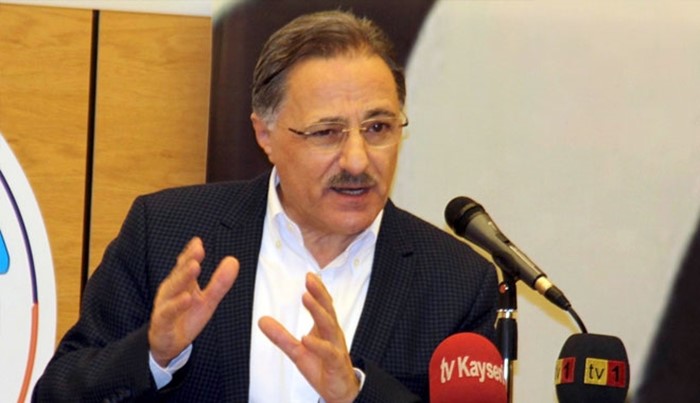Prof. Dr. Şükrü Karatepe, a top advisor of President Recep Tayyip Erdoğan and one of the architects of a constitutional reform that seeks to introduce an executive presidency in the country in an April 16 referendum, said they can change the new system if it does not work, T24 reported on Wednesday.
“We’ll put it into practice for three to five years. If we see it doesn’t work, Parliament can change it again,” said Karatepe during a TV program.
Upon a question from the TV presenter as to whether or not this is a trial-and-error method, Karatepe said, “At the end of the day, we will switch to a system that we don’t know.”
“There is a risk in everything. It is even a risk for a political leader to bring this to the agenda. There’s the joy of it,” said Karatepe after the presenter asked if there is a risk in trying such a system.
Last week, President Erdoğan’s chief advisor Mehmet Uçum said even if the Turkish people reject a constitutional reform that seeks to introduce an executive presidency in the country in a public referendum to be held this month, the plan to introduce the new system will not be shelved.
Speaking to the Habertürk daily, Uçum said: “[If a ‘no’ vote comes out of the referendum] the proposal for a switch to an executive presidency will not be shelved. If this model [for an executive presidency] has failed to eliminate some concerns. Those concerns need to be found out, and a new and strong model should be presented that will eliminate the concerns.”
In January, Turkey’s Parliament passed the constitutional amendments later approved by Erdoğan that would transform the political order into an executive-style presidential system, effectively widening the scope of power of the position.
The ruling Justice and Development Party (AKP), backed by the Nationalist Movement Party (MHP), pushed through the legislation that President Erdoğan says will bring the strong leadership needed to prevent a return of the fragile coalition governments of the past.
According to Uçum, it would be wrong to interpret a possible “no” vote in the referendum as the public’s willingness to continue with the parliamentary system that is currently in effect in Turkey.
“This constitutional reform is being made to correct an anomaly in the system. There is consensus over the presence of an anomaly in the system,” said Uçum.
The Republican People’s Party (CHP) and pro-Kurdish Peoples’ Democratic Party (HDP) fear the reform will fuel authoritarianism.
Parliament’s approval paved the way for a nationwide referendum on the amendments, which would give the president, a traditionally more ceremonial role, the power to dismiss ministers and Parliament, issue decrees, declare emergency rule and appoint figures to key positions, including the judiciary.
It would also allow the president to be a member of a political party, which is currently prohibited under the constitution as the presidency is expected to exercise impartiality.
The referendum on the constitutional amendments will be held on April 16.

